Storytelling in the sci-fi genre is a very tricky thing. Before you can present it to others, you have to work out every single detail. Unlike a couple of other genres that provide you with the option of allowing your story and characters to flow wherever they want, sci-fi needs you to set your boundaries before you start exploring the horizons. With time, filmmakers started to inculcate more science in their plots, which has further allowed them the possibilities in which they can convolute their stories. Legendary filmmakers like Steven Spielberg, James Cameron and Ridley Scott had already been testing the waters of a futuristic world with their imagination in the last century itself. Not to forget ‘2001: A Space Odyssey’, Stanley Kubrick’s mind-boggling masterpiece. The point is that the plots of sci-fi movies have always been intricate, tricky and demanding of your evaluation. 1990’s ‘Total Recall’ is one of them.
If you have satisfied yourself by watching 2012’s Colin Farrell version of the film, then you are wrong to think you have grasped the idea of the original. Both of them are very different, and no debate on it, the original is far, far better. Set on Mars, it was a fresh concept back in 1990. The film had a plot whose effect was amplified by its ambiguous ending. It was full of charm and sarcasm, which made it a fun watch. Back then, you could consider it a very mild version of ‘Inception’, a lot milder but great, nonetheless. This is where you should stop if you haven’t watched the Arnold Schwarzenegger flick. If you have, let’s move forward!
Summary of the Plot
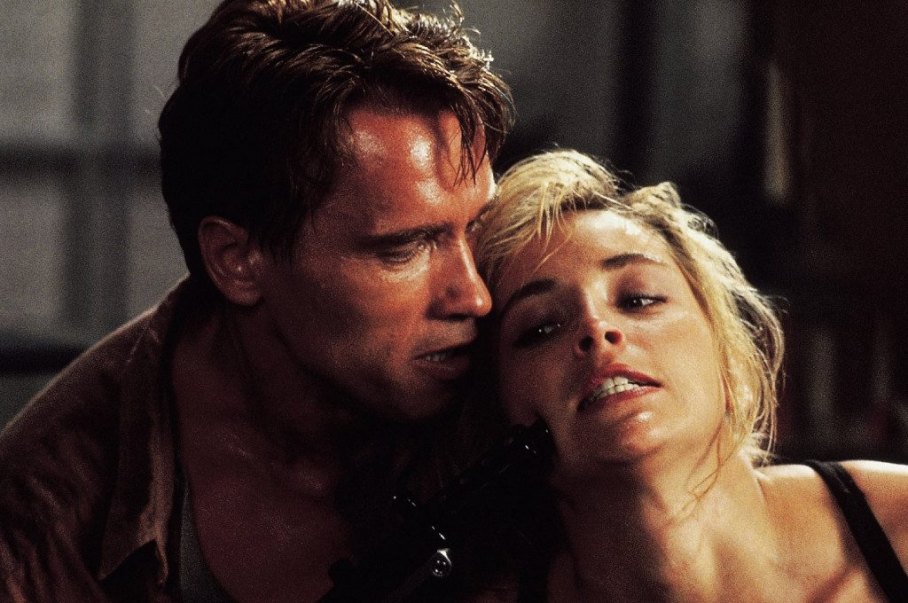
The story is set in a future which is not so far away from the present. Humans have colonized Mars and have actually moved beyond that, at least till Saturn. How far ahead, we are not told. There are all sorts of futuristic technologies now — X-ray machines in the subway, communication devices with cameras, a mask that can turn you into a 70-year-old woman, a cab driven by a robot! While some of it might feel familiar in real life, we are still decades away from other techs, like the nail paint changer! One of the perks of living in this world is the technology of Recall. It allows you to have memories of trips and vacations without you having been there. No hassle of traffic and ticket booking, no encounters with lousy staff and irritating strangers, no lost luggage, no stolen purses. Recall will give you the best memory that no real experience could give you. They’ll implant it in your brain with the exact specifications mentioned by you, and you’ll have a vacation that you had always dreamed of.
Douglas Quaid (Arnold Schwarzenegger) is a construction worker who has a beautiful woman (Sharon Stone) as his wife, but his mind is haunted by another. Every night, he dreams of being in Mars with another woman (Rachel Ticotin). So, one day, he decides to do something about it. And also, he’s a construction worker, in case you were wondering how he got this huge build. On the subway, he comes across an ad of Recall and an image of Mars compels him to get some memories of his own. In a short interview, he is given a run-through of everything his dream will constitute, right to the detail of the woman he will meet and the aliens he’ll defeat. As they begin the procedure of memory implants, Quaid begins to have violent reactions. The problem begins when it is revealed that he already has suppressed memories.
Welcome to Mars
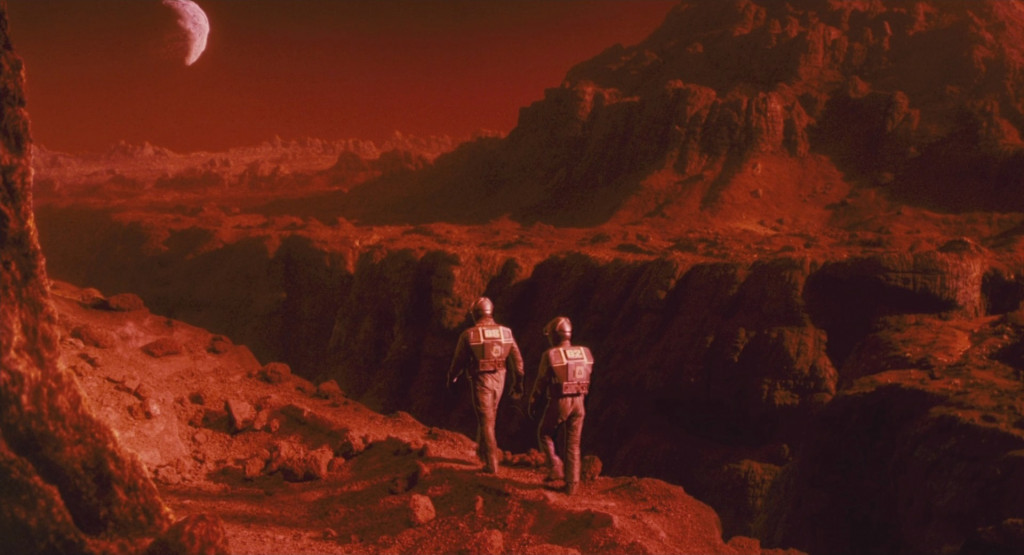
After the debacle at Recall, the staff manages to remove his memories of the place and lets him back into the world. However, Quaid is followed by a group of people who are out to kill him. A message from his old-self familiarises him with his current condition and he is told to get back to Mars where he has to help the revolutionaries in defeating the oppressive human rule.
The colonization of Mars by humans has turned out to be a great catastrophe for social structure. One corporation has gotten hold of the air supply, and they decide who gets how much air. The poor and downtrodden have further been afflicted due to the bad conditions in which they live. Inefficient methods of shielding have exposed them to the solar radiation which has turned them into mutants. And it is not the cool X-men sort. They are the ones with extra limbs and disfigured faces. What this mutation has allowed them is the psychic ability, which I guess varies from one person to another. One of those mutants is Kuato, the one who is leading the revolution. He lives in the body of another man and they work as each other’s alter-ego. One gains consciousness when the other has gone to sleep. The corporation doesn’t know that and that’s why they haven’t been able to quash the rebellion.
The Ending: Was It All A Dream?
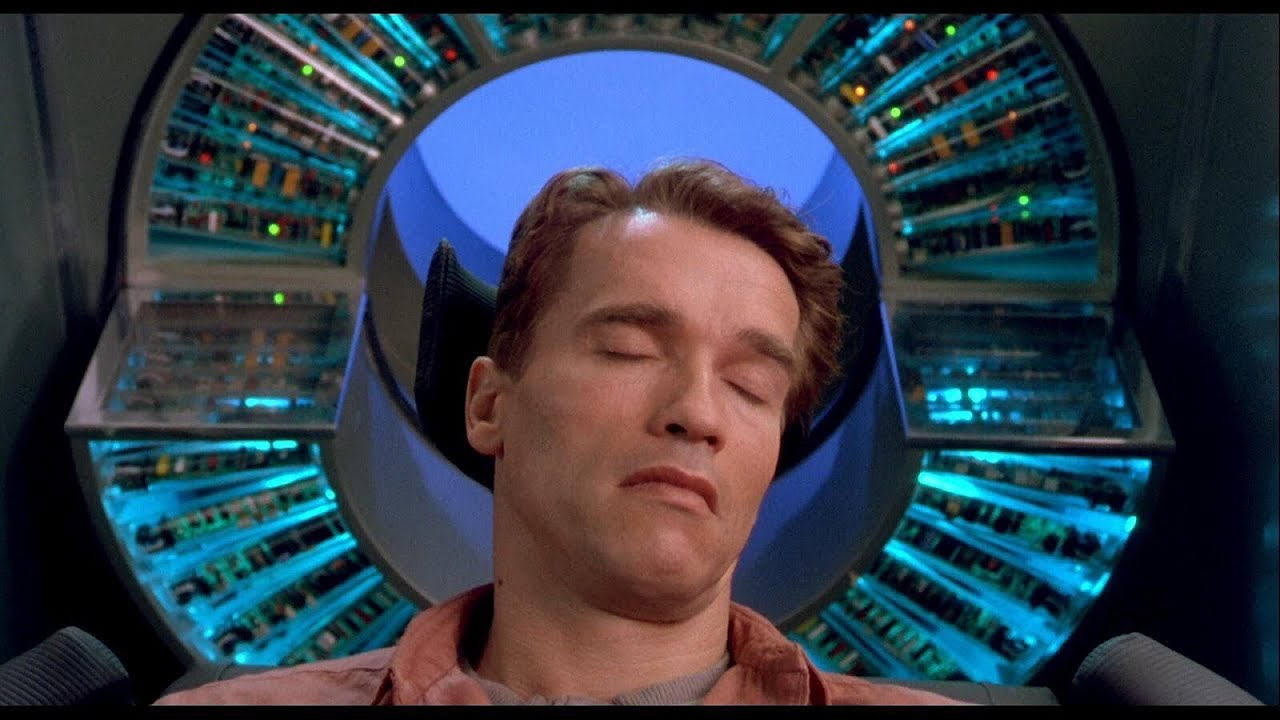
At the end of the film, Quaid accepts himself as, well, Quaid, rather than going back to being Hauser. Cohaagen triggers a bomb which drops the pressure of the chamber and they are sucked out into the atmosphere. Before he is swept away, Quaid succeeds in pressing the button and before he and Melina can die, the atmosphere of Mars is changed. The air becomes breathable and the planet is saved. As they look at the now blue skies of Mars, Quaid wonders if it is a dream. Melina asks him to “kiss her quick before he wakes up”, and with that, they are drowned in white light. The question the ending begs is, was it real or was it all a dream?
If you go according to the suggested route of the film, there is nothing to worry about. Quaid was Hauser, who had his memories erased so that he could help the corporation find out who and where Kuato was. He succeeded in the mission but refused to go back to being Hauser, got the girl, saved the planet, became a hero. But wait, doesn’t that sound familiar?
When Quaid had gone to Recall Incorporated, he had chosen the package that was tailored according to his needs. He wanted to be a secret agent, wanted a love interest that’d be both “demure” and “sleazy”. His package promised to deliver the story where he “gets the girl, kills the bad guys and saves the entire planet”. Isn’t that what really happens at the end? Was it all just a glorious treat he received for “measly 300 credits”? Further arguments that support this theory are that someone foreshadows Quaid’s actions way before he performs them.
Before being implanted by memories, Quaid is asked a couple of questions. They ask if he wants to “integrate alien stuff”, where he chooses a “two-headed monster”. Kuato turns out to be a version of that, though calling him a monster wouldn’t be ideal. Next, “a blue sky on Mars” is the background given to him. In the end, after the atmosphere-cation (?) of Mars, the sky takes the blue cover. When the story of him actually being Hauser comes out, it coincides with the description of the memory implant. “You are a top operative under deep cover on your most important mission”. I can’t think of any other film that has spoiled its own plot within the first fifteen minutes and still succeeded in capturing the fancy of the audience. And that’s not even the end of it!
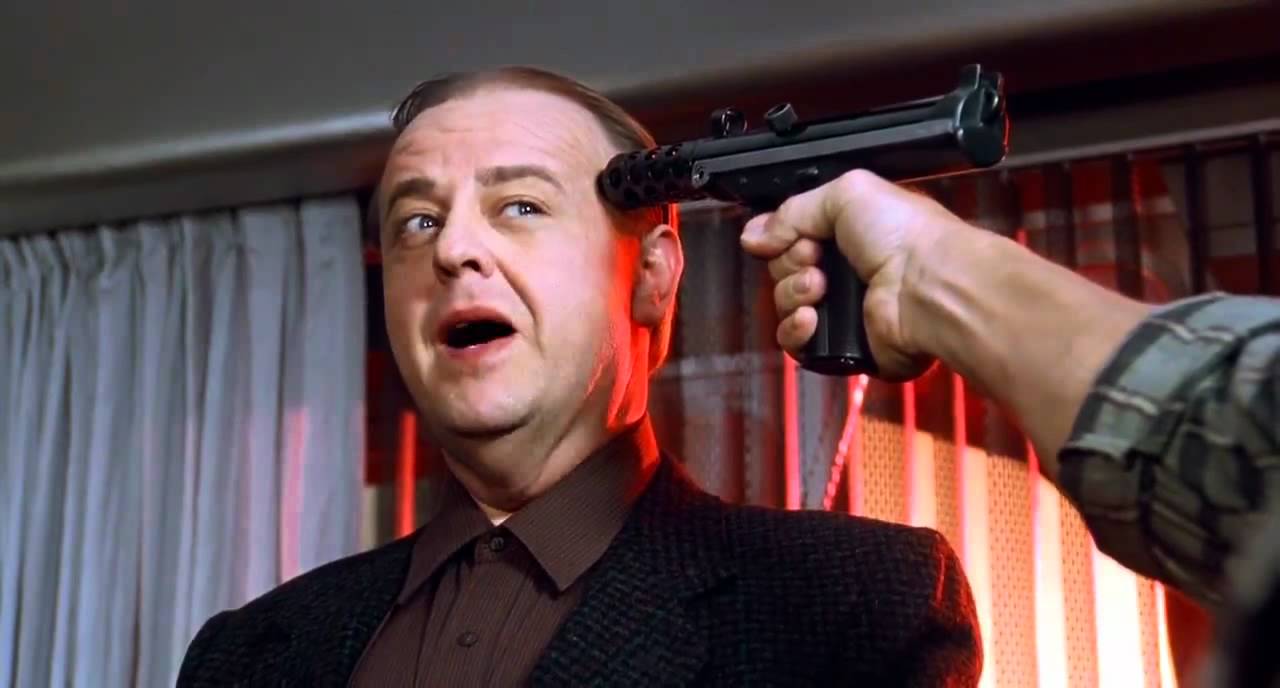
Just as the second half begins, the next five minutes are spent summarising the events that are to come. After being rejected by Melina, Quaid goes back to his hotel room where he receives a visitor. Dr Edgemar from Recall tries to convince him that he has been trapped in a schizoid embolism. He tells Quaid that in reality, he is still strapped to a chair at Recall and all that has happened is actually going on inside his head. When he refuses to accept it, the doctor tells him that further, “the walls of reality will come crashing down”. And here’s the interesting part, “one minute you are the saviour of the rebel cause, the next you know you’ll be Cohaagen’s bosom buddies”. This is exactly what happens.
After he locates Kuato, Benny, the friendly taxi driver, turns out to be Cohaagen’s spy and kills Kuato. Next, it is revealed that Hauser actually worked for Cohaagen and was, in fact, his best friend, i.e., bosom buddies! Further, the “integrated alien stuff” comes in the form of the atmosphere-making machine. What further tips us off is how quickly the machine works. How convenient it is that Cohaagen dies but Quaid and Melina survive by the time the air becomes breathable! Yes, many movies use such deux ex-machina sort of twists in their stories, but because we are questioning the nature of reality in this one, I think it is alright, nay, essential that we wonder how everything works so smoothly in the protagonist’s favour.

The final thing that makes you wary of Quaid’s story is the white light at the end. As the characters make out under the blue Martian sky, a white light engulfs them whole, and the film comes to an end. Usually, a fading-to-black method is used to conclude a film. The white light at the end generally appears in the stories where the characters are either ascending to heaven or are about to wake up from a dream! In fact, the intention of this effect was exactly this — to confuse the audience. To make them wonder if it actually was a dream!
Even though there are many arguments in favour of the dream theory, there is one that we simply can’t ignore before coming to any concrete conclusion. It is possible that Quaid was just a simple man who just wanted to have a made-up vacation to Mars. He went to Recall Inc. for that purpose, and everything that happened after was just him in his dream. He never woke up, and because of that, was lobotomized, while his mind continued to venture in his made-up memories. But, and it’s a big one with scarce to no reasons to explain it, what about the very first scene of the film? In it, Quaid dreams about being on Mars and alongside him is none other than Melina herself. If Quaid hadn’t received a memory yet, how did he already know her? How could he dream about her even when he hadn’t met her? The answer to that is either he had already met her and the whole film was actually a true account of his memories. This just nullifies every other statement I made against this case.
The other way, and maybe a bit far-fetched, is that Quaid had already received a memory implant from Recall. The trick that Recall used was that they integrated your travel memories so deep that your brain couldn’t spot the difference and considered them to be real. So, what if, this isn’t the first time Quaid has asked for a vacation? What if he received a memory-vacation (Mecation? Vamory?) before this and because it was very well done, he didn’t know that he had been to Recall before!
Now, if Quaid was already a customer, why didn’t the people at Recall recognize him? But that’s the point. They know exactly who he is, but to remind him that a particular set of his memories is actually fake might not go so well for them. Anyway, if their customers come back, it only means more money for Recall, right? This also solves the problem of how he could see Melina in his dreams even before he had actually met her. She was a part of the memory tapes and that’s why exactly her face came up when they asked for the type of woman Quaid would fantasize about. No matter what adventure he chooses, Melina would appear in it because he would always choose the same type. So, maybe, the schizoid embolism happened because Quaid already had implanted memories, maybe too many, and what happened to him was just a result of overloading!
Alternate Ending

The ending of ‘Total Recall’ forever shrouded its true nature in the mystery that will continue to remain the topic of discussion amongst fans. This is what has given the film cult credibility amongst the audience. Its special effects have aged badly, its comedy might be a bit cheesy for future generations, it didn’t put too much effort into getting its science right, and none of these are things that it will be remembered for. It is the ending, the highly blurred lines between dream and reality that will make its name come up over and over again. If the film had not received that twist, I probably wouldn’t have been writing about it right now.
Originally, things were supposed to go a different way. This ending would have given a concrete reason for everything that we see in the film and a lot of things would have become clearer. In an alternate universe, this is how the audience would remember ‘Total Recall’. When Quaid finally makes it to the machine, instead of seeing the weird four-fingered handprint on the button, we see a proper human hand which matches Quaid’s. Once he touches it, all his memories come rushing back. In truth, the original Quaid had found his way to the reactor. Just as he was about to turn it on, i.e., he laid his hand on the button, hence the handprint, the machine killed him. How exactly? I don’t know. It was poisonous, or he got an electric shock when he turned it on, or it demanded a human sacrifice to save the planet. I guess we’ll never know. What we do know is that there was a by-product left behind. In return for killing the human, the machine created a clone. (This approach would have solved ‘The Prestige’ dilemma so well!)
Now, because he was a clone and because humans hadn’t created him, they had no idea how to kill him. He wasn’t exactly a machine they could just turn off, neither was he regular flesh and blood that they could shoot or burn. In simple words, the machine had created an immortal. Threatened by his presence and unsure of his plans, they decide that the best way is to make him forget everything. Now, this is a better reason for erasing someone’s memory rather than having them infiltrate the enemy ranks and complete their mission. Once he lays his hand on the machine, the clone remembers everything, including the fact that he can’t be killed. The film ends with him saying, “It’ll be fun playing God”. Though this gives an ominous tone to everything, admittedly, it is not better than what we got. Obviously, with this ending, the plot of the film would have been altered accordingly; probably, focusing on his deviant morality which could pose a threat to humans. Anyway, it didn’t happen that way, for the better.
If you are willing to consider another version, you should read ‘We Can Remember It for You Wholesale’, the short story by Phillip K. Dick on which the film is based. The film and its inspiration have the same concept; however, the stories take completely different turns after one point in the story. Not to spoil anything for you, but another layer of suppressed memories is recovered from Quaid’s brain. If you want to know more, you know where to go.
Read More in Explainers: Pretty Woman | Se7en | Requiem for a Dream

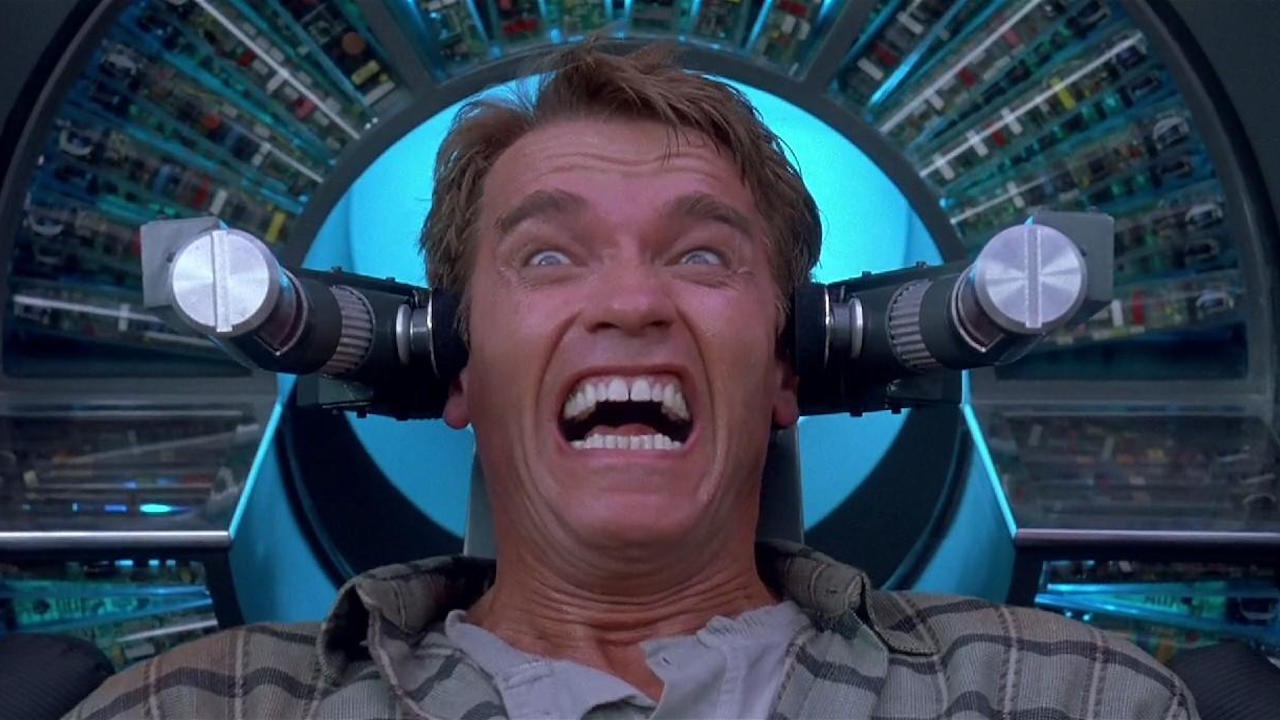
You must be logged in to post a comment.